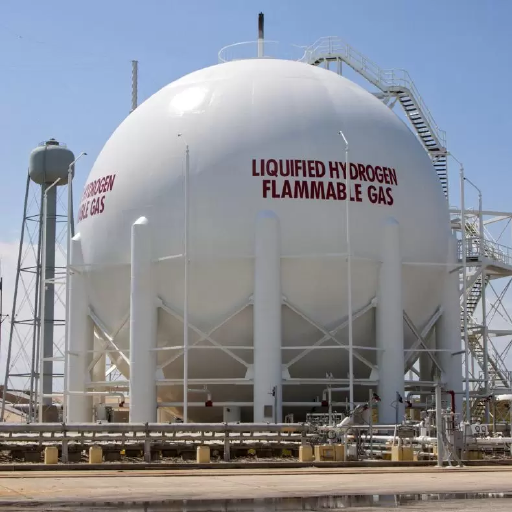Everyone's excited about this new climate solution, but it could create a new climate problem
Hydrogen, the “fuel of the future,” is coming. It already powers buses in California and cars in Europe. Small, hydrogen-fueled passenger aircraft will soon begin test flights.
The U.S. government is investing $8 billion to set up regional hubs to research, produce and use hydrogen — states from New York to Oklahoma want in. Public and private investments in hydrogen worldwide are growing by roughly $1 billion every week.
Why the excitement? Hydrogen could be a clean alternative to using fossil fuels. It can be produced in ways that create little or no carbon dioxide pollution, and then used to power heavy industries like cement manufacturing, as well as ships and trains.
Done right, hydrogen could be a key climate solution, a fuel with near-zero climate impacts. Done wrong, hydrogen could be worse for the climate in the near-term than the fossil fuels it’s intended to replace.
Whether hydrogen turns out to be a climate Jekyll or Hyde will depend, based on research by Environmental Defense Fund, both on how it’s made and how much of it leaks.
How hydrogen affects the climate
Hydrogen is an indirect greenhouse gas. It doesn’t trap heat, but, through a series of chemical reactions, it increases the amount of greenhouse gases like methane, which is accelerating the rate of global warming.
Hydrogen’s effects on the climate are short-lived but potent, say EDF scientists Steven Hamburg and Ilissa Ocko, co-authors of the new study.
“If we overlook near-term climate impacts,” says Ocko, “we risk more climate damage during our lifetimes. Addressing them is going to help us today as well as the generations of tomorrow.”
Hamburg and Ocko previously drew attention to the near-term climate impacts of methane pollution (methane is the primary component of natural gas) and helped drive global action to cut methane leaks from the oil and gas industry. This time, the team took a fresh look at hydrogen.

The standard way to characterize the power of a climate pollutant is based on its impacts over 100 years. But that long time frame masks near-term effect, which can be powerful.
Hamburg and Ocko analyzed climate impacts from scenarios of hydrogen leakage over a few years to 100 years, revealing the warming effects over all timescales.
The shift in perspective was dramatic: Over 10 years, they found, hydrogen emissions could have up to 60 times more warming power than an equal amount of CO2, which is four times higher than its impact over 100 years.
Leaks could make or break hydrogen’s climate success
Hydrogen is a tiny, slippery molecule, known to easily leak into the atmosphere. If the world were to develop a vast network of hydrogen production facilities, pipes and storage tanks, and hydrogen-powered homes and vehicles, that would create a vast potential for hydrogen to leak and warm the climate.
According to EDF’s research, if hydrogen has a high leak rate, and it’s produced from natural gas with a high methane leak rate, then replacing fossil fuels with hydrogen could increase warming for several decades.
On the other hand, if it’s produced using renewable energy and water and leak rates are minimal, switching to hydrogen could nearly eliminate the warming impacts from fossil fuels.
Getting hydrogen right
We have a lot more to learn about hydrogen before it can deliver on its promise, say Ocko and Hamburg, who are spearheading more research to examine how and where hydrogen leaks.
But this much is clear: hydrogen’s value in addressing the climate crisis depends on where it is used, how it’s produced and if leakage is minimized.
And climate isn’t the only consideration. If hydrogen is burned directly in a power plant or a home boiler, it can produce nitrogen oxides, air pollutants that can cause asthma.
“The industry is in its infancy,” says EDF’s VP for Energy Transition, Mark Brownstein. “Now’s the time to make sure we address these concerns — not after we’ve built out the system.”


